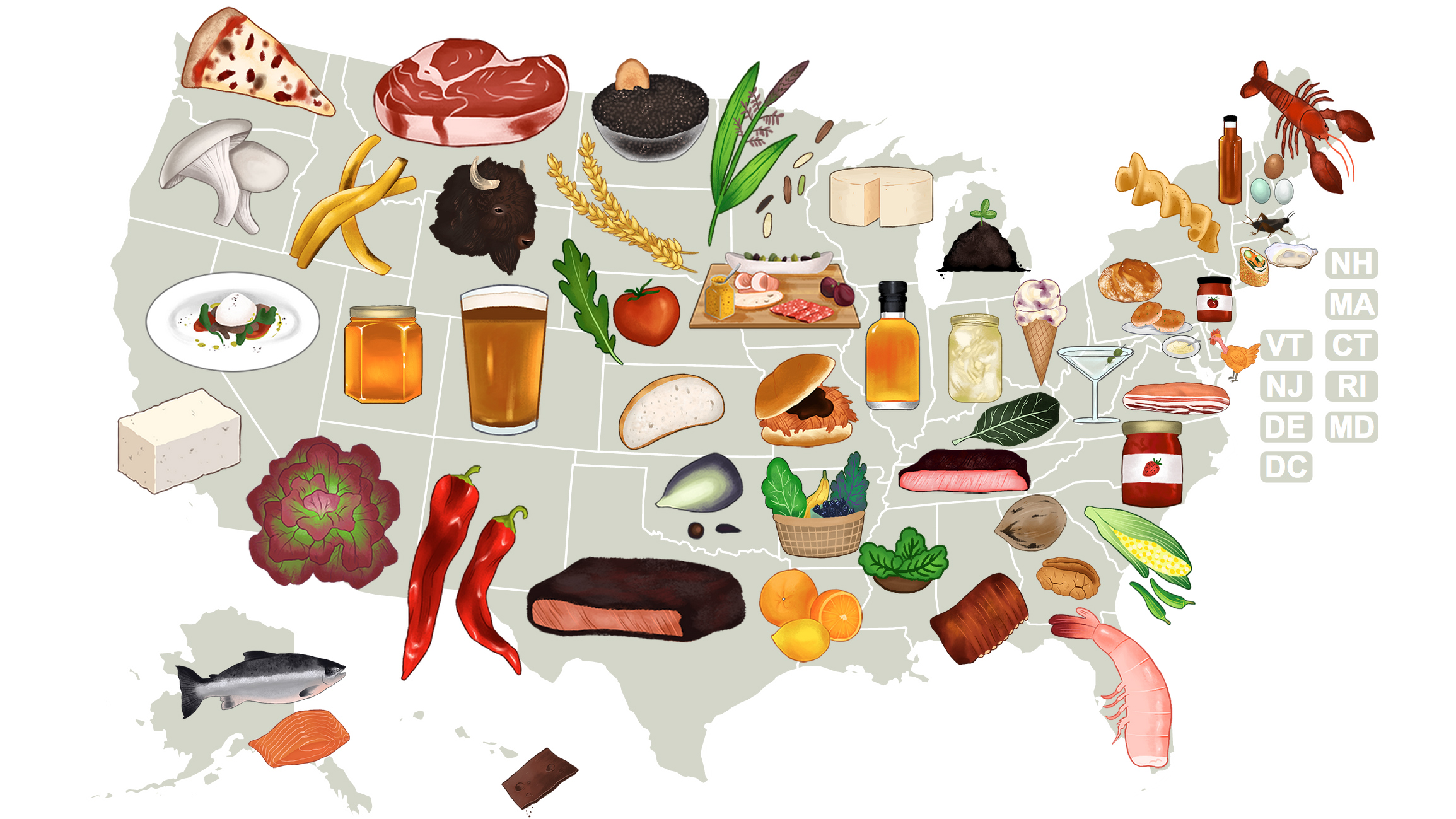The map works best on large screens. You can access each map entry on this page.
[protected-iframe id=”8f73d1ccdf2cc0a9afb9fea2fbfa20b1-5104299-15574887″ info=”https://s3.amazonaws.com/assets.grist.org/article/this-is-what-a-more-sustainable-american-food-system-looks-like/grist-food-map.html” width=”100%” height=”650px” frameborder=”0″ scrolling=”no”]
Let’s be real: The American food system today has some pretty daunting issues. We’re saddled with a farming system that, on the whole, releases a massive amount of greenhouse gases into the atmosphere (675 million metric tons annually at the most recent tally, to be exact), sucks nutrients from the soil, and leaches chemicals into the water table. And in regions with some of the richest farmland, historically speaking, you can’t buy a fresh vegetable for love or money — but you can get a two-liter bottle of potable sugar and an endless variety of nutritionally vacant foodstuff approximations at any corner store. To that end, we find ourselves in the midst of a dietary and environmental crisis. We could ask, “How did we get here?”, but I’m not trying to answer that question. There are many possible culprits at whom we could point fingers, but what’s much, much more important is how we get ourselves out of this mess.
As someone who unironically loves this country, I challenged myself to find someone in every state in the nation who’s breaking the status quo when it comes to production of, access to, and education about food — but in a way that’s characteristic of, or addresses a particular need in, their home state. Spoiler alert: I did!
But what interests me far more are the choices that each of these people are making in terms of how to produce food more sustainably. When there are so many problems, how do you pick which one to tackle first? In these fairly nascent stages of turning around the food system, it’s unfair to say that there’s only one correct solution.
Click on each state (plus Washington, D.C.) above to see 51 answers to the question: How can we build a more sustainable American food system?
(Food illustrations by Amelia Bates)



